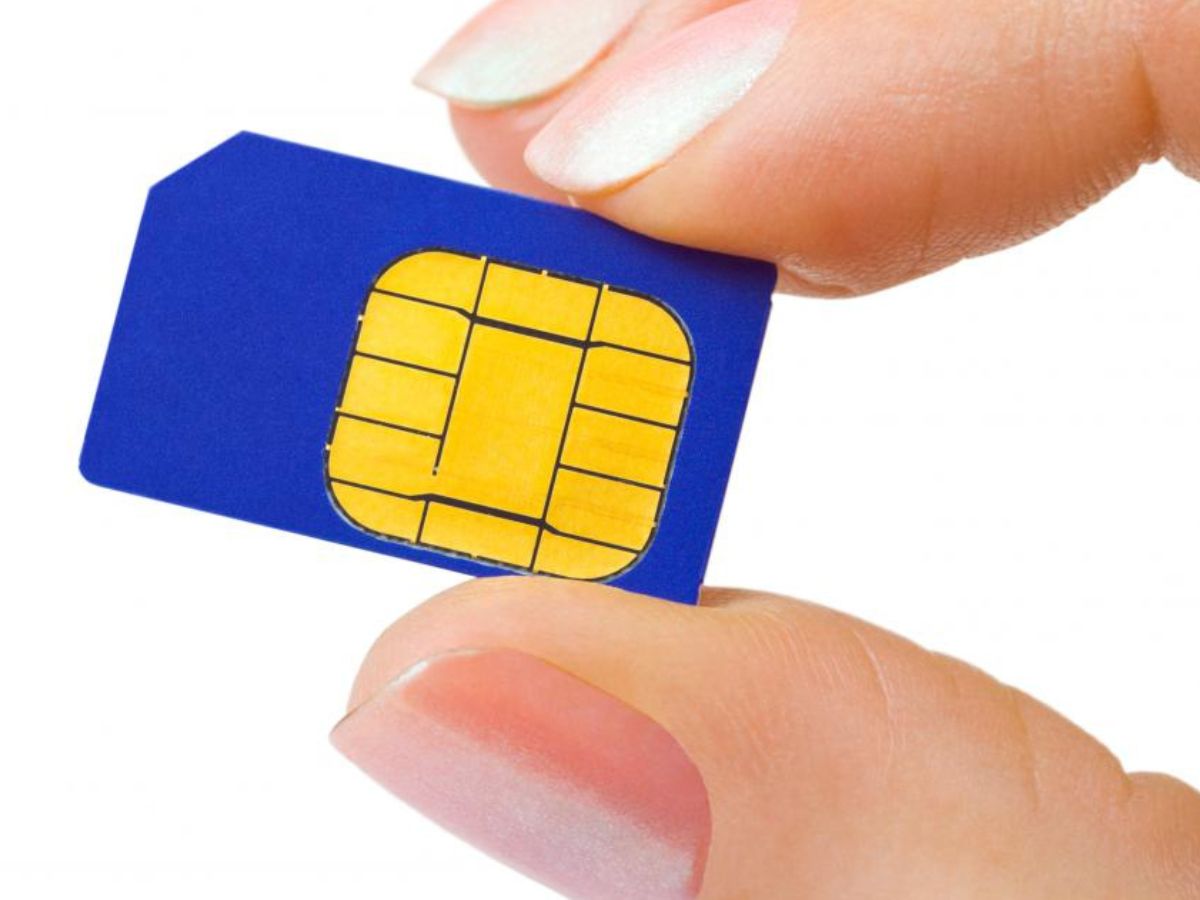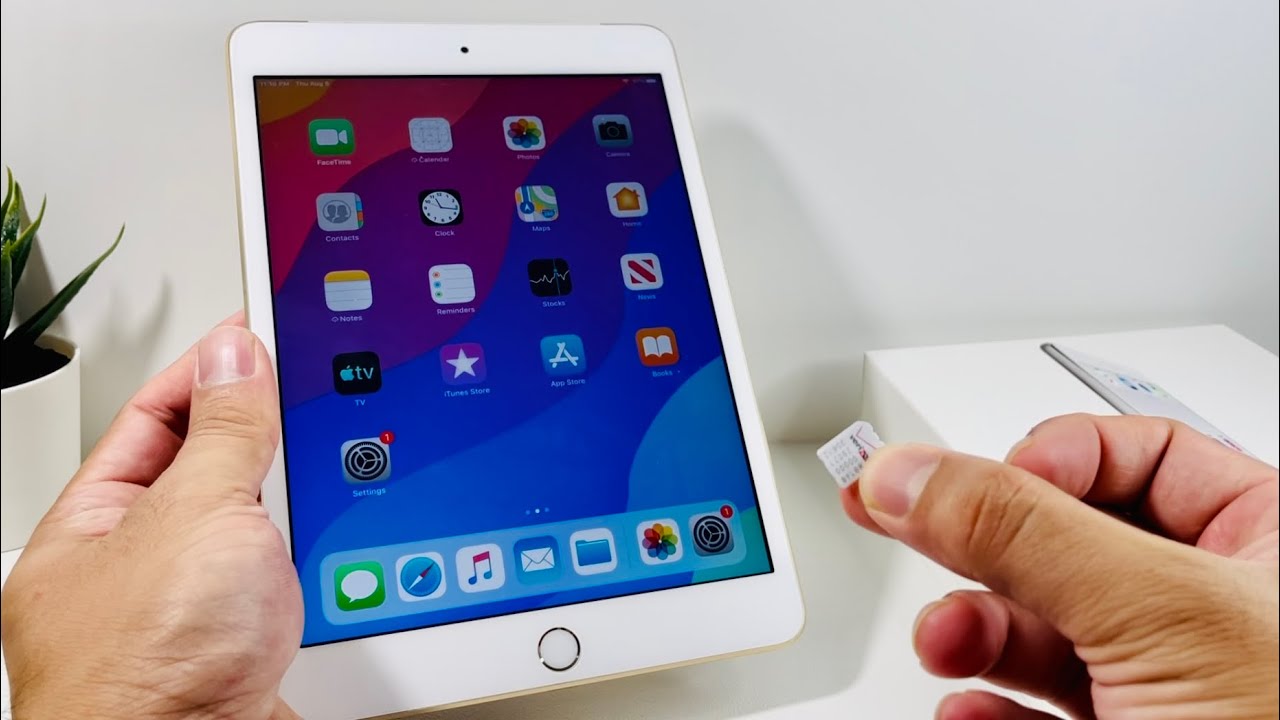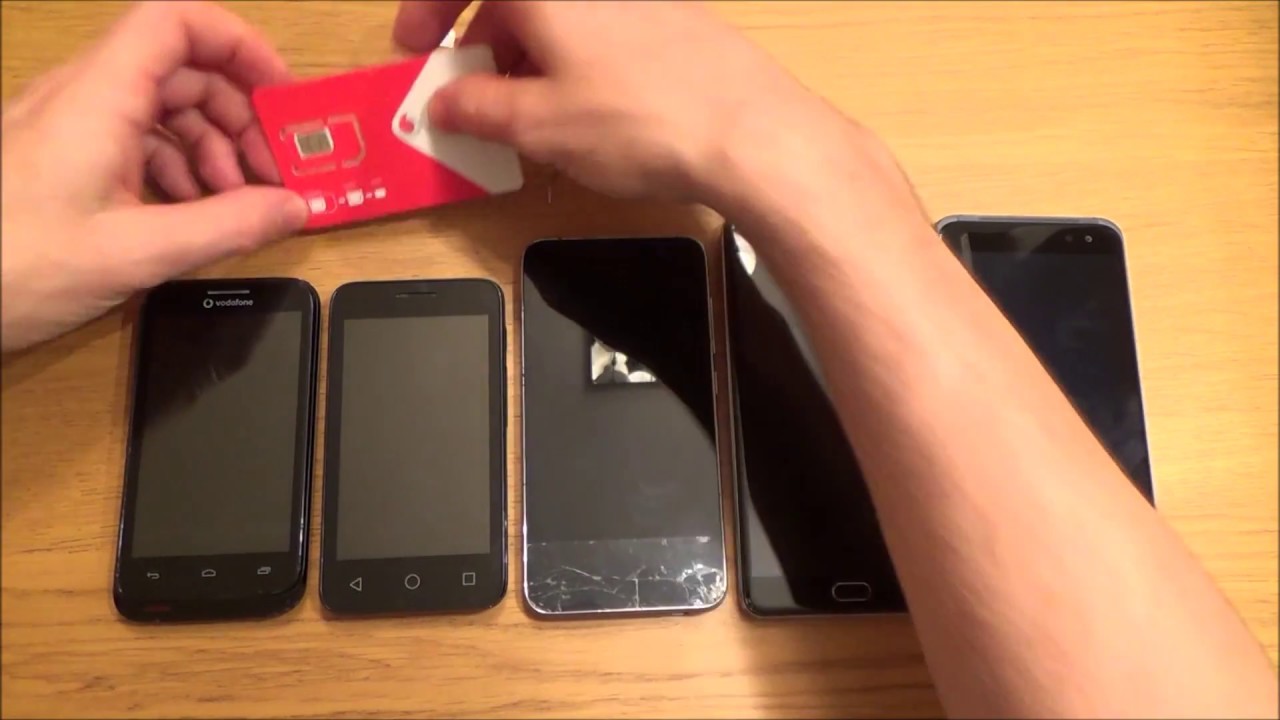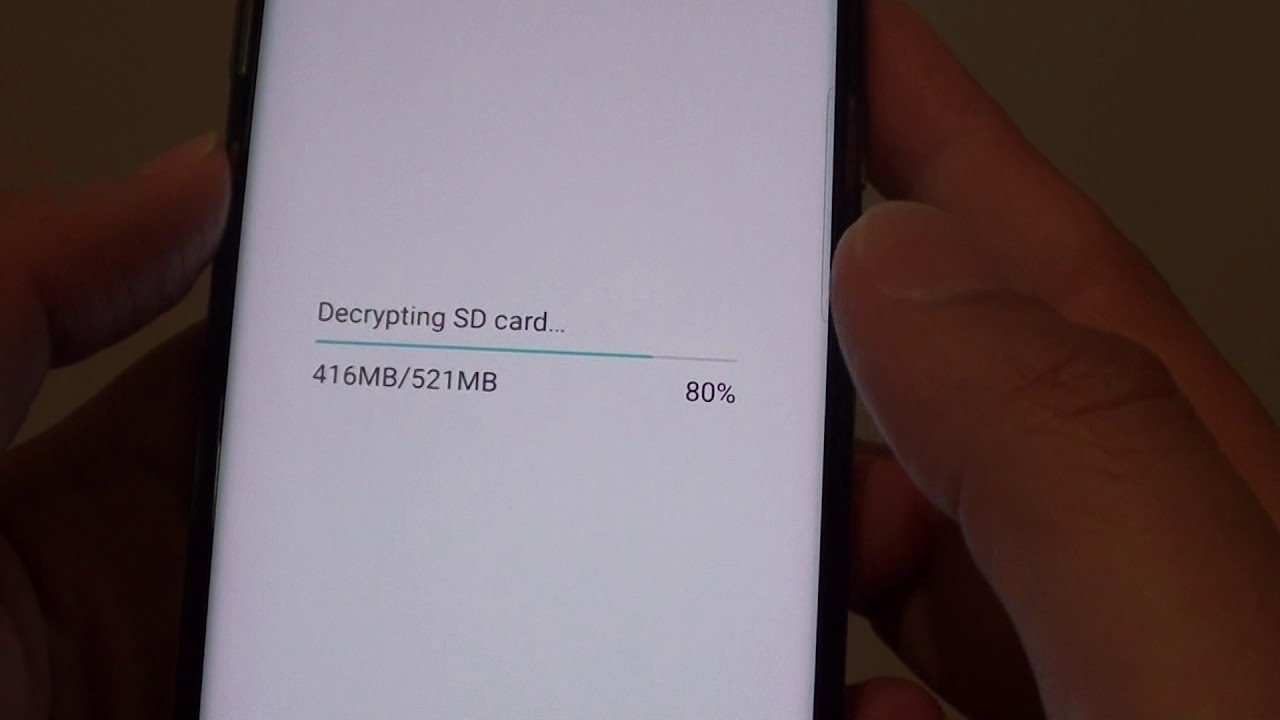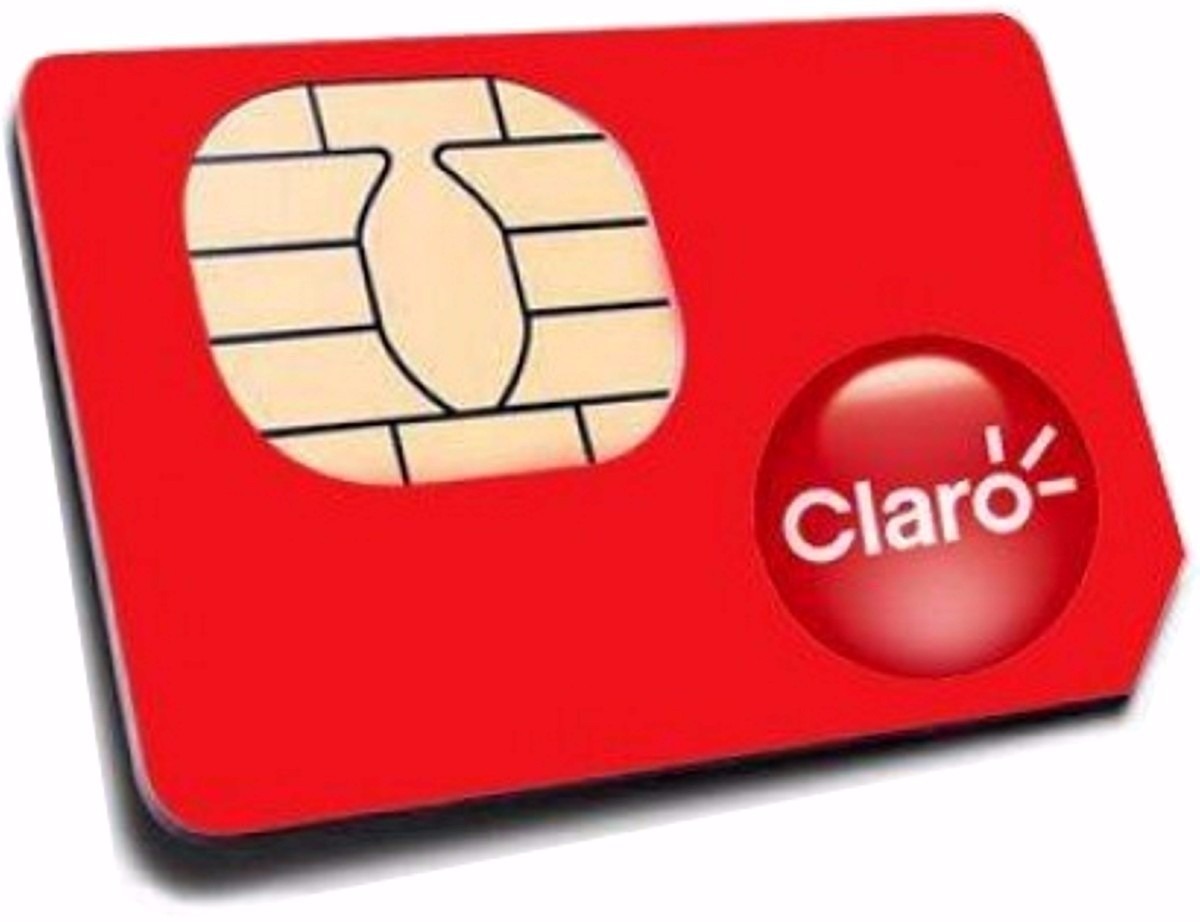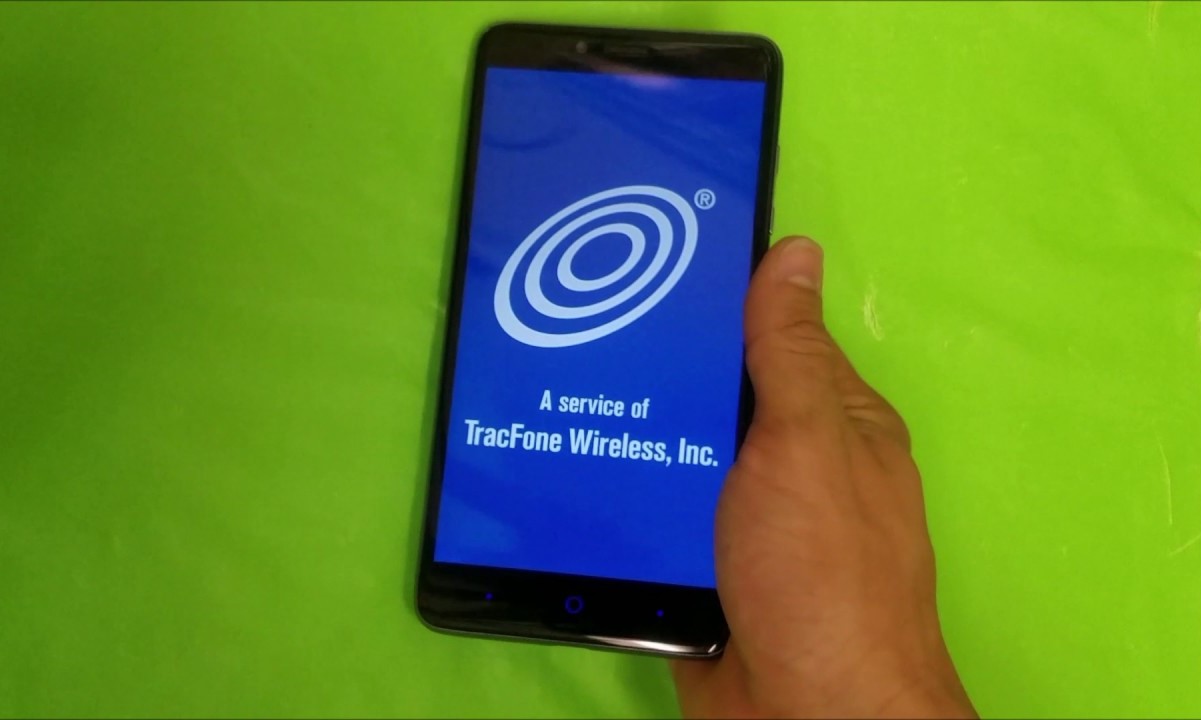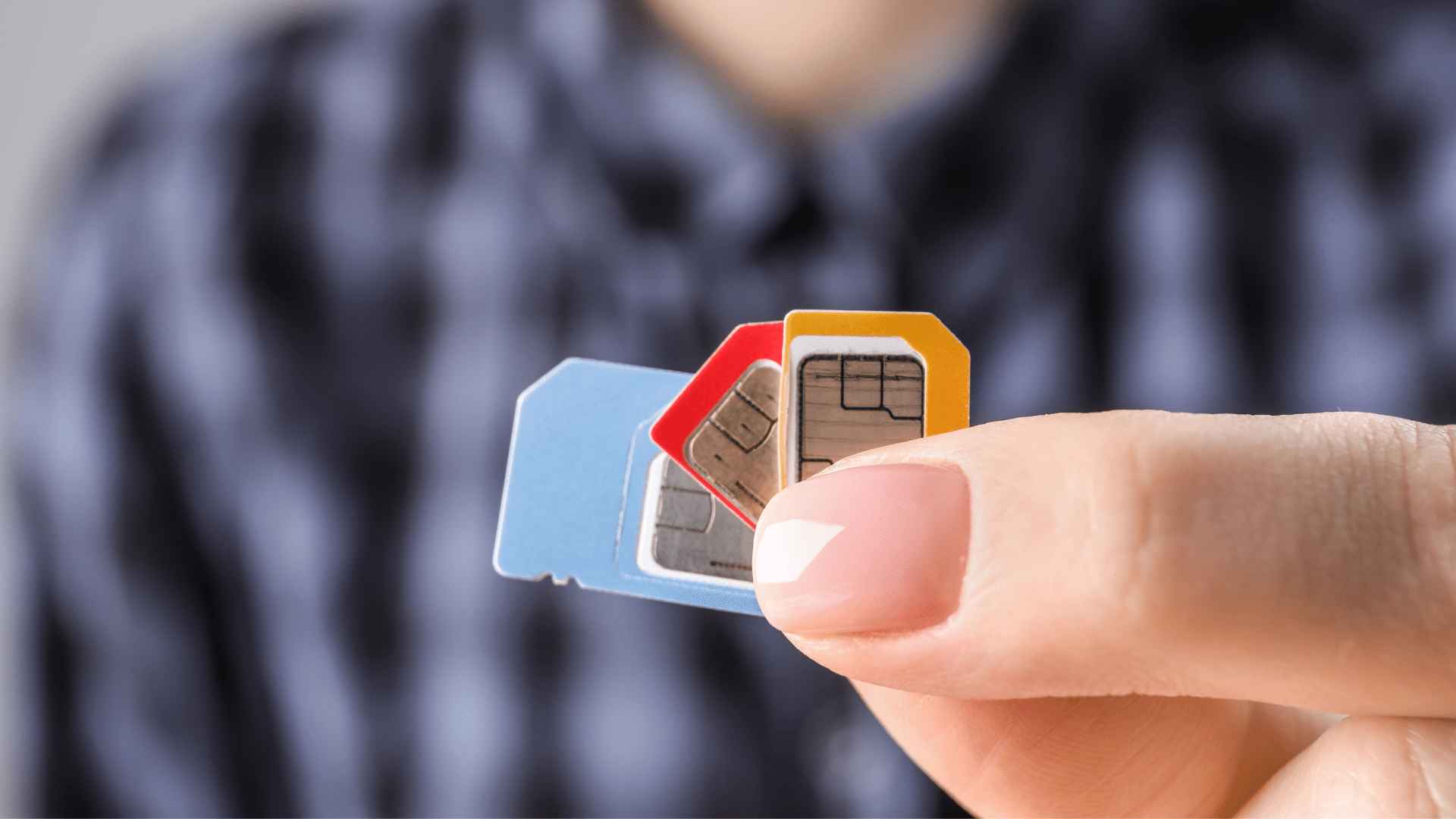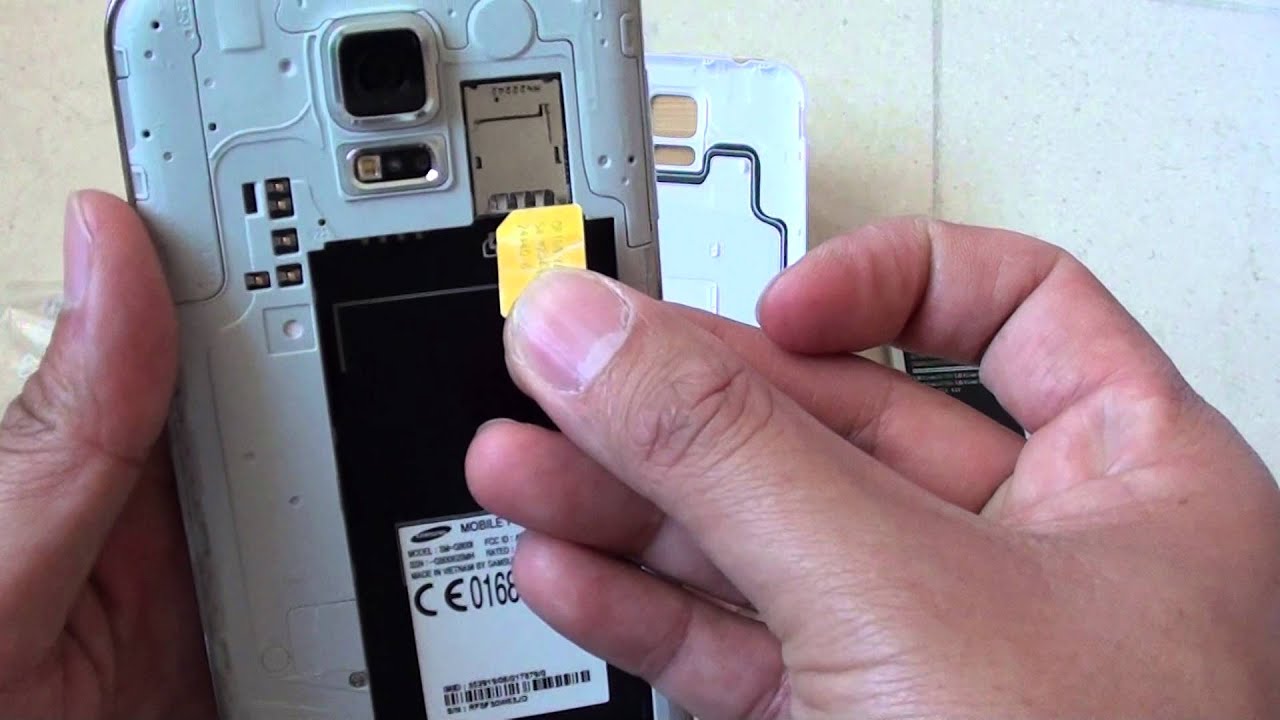What is a SIM Card?
A SIM card, or Subscriber Identity Module card, is a small, removable smart card that is inserted into mobile devices such as smartphones, tablets, and even some smartwatches. It serves as the link between the device and the mobile network, enabling users to make calls, send texts, and access mobile data services.
The SIM card contains essential information that uniquely identifies the user and the mobile device to the network. This information includes the International Mobile Subscriber Identity (IMSI), which is a unique identification number assigned to each SIM card. Additionally, the SIM card holds the Integrated Circuit Card Identifier (ICCID), which is a unique serial number used to identify the SIM card itself.
Furthermore, the SIM card stores the authentication key, which is crucial for securing communication between the mobile device and the network. This key plays a vital role in ensuring that only authorized devices can access the network, thus safeguarding against unauthorized usage and protecting the user's privacy.
In addition to these critical functions, SIM cards also store contact information and text messages, serving as a portable repository of personal data. This feature allows users to easily transfer their contacts and messages to a new device by simply moving the SIM card.
Overall, the SIM card is a fundamental component of mobile communication, serving as the bridge that connects the user's device to the mobile network, authenticates the user, and stores essential personal data. Its compact size and essential role make it a crucial element in the operation of mobile devices, highlighting the significance of understanding its function and security implications.
Why Would Someone Want to Decrypt a SIM Card?
The desire to decrypt a SIM card may arise in various scenarios, each with its own motivations and implications. Understanding these reasons provides insight into the potential uses and risks associated with SIM card decryption.
Investigative Purposes
Law enforcement agencies and forensic investigators may seek to decrypt a SIM card as part of criminal investigations. Extracting data from a SIM card can provide crucial evidence related to communication patterns, contacts, and location information, aiding in the resolution of criminal cases. By decrypting a SIM card, investigators can uncover valuable insights that may contribute to solving crimes, identifying suspects, and establishing timelines of events.
Legal Proceedings
In legal proceedings, decrypted SIM card data can serve as critical evidence in civil cases, such as disputes involving telecommunications records, contract breaches, or family law matters. The information obtained from a decrypted SIM card can substantiate or refute claims, validate alibis, and shed light on the activities and interactions of individuals involved in legal disputes.
Personal Investigations
On a more personal level, individuals may consider decrypting a SIM card to gain access to their own data, especially in situations where they have lost access to their mobile device or are unable to retrieve important information stored on the SIM card. This may occur when a device is damaged, lost, or stolen, and the user needs to recover contact details, messages, or other vital data that was stored on the SIM card.
Security Audits
In the realm of cybersecurity, ethical hackers and security professionals may attempt to decrypt SIM cards to assess vulnerabilities and strengthen mobile network security. By uncovering potential weaknesses in SIM card encryption, security experts can recommend improvements to safeguard against unauthorized access and data breaches, ultimately enhancing the overall security posture of mobile communication systems.
Unauthorized Access
It is important to acknowledge that some individuals may seek to decrypt SIM cards for illicit purposes, such as gaining unauthorized access to private information, perpetrating fraud, or engaging in unlawful surveillance. These activities underscore the potential misuse of decrypted SIM card data and the importance of protecting personal privacy and sensitive information.
In summary, the motivations for decrypting a SIM card are diverse, ranging from legitimate investigative and legal purposes to personal data recovery and security assessments. However, it is essential to recognize the ethical and legal considerations surrounding SIM card decryption, emphasizing the need for responsible and lawful handling of decrypted data.
How is a SIM Card Decrypted?
Decrypting a SIM card involves the extraction and analysis of the data stored within the card, which typically includes sensitive information such as call logs, text messages, and contact details. The process of decrypting a SIM card requires specialized tools and techniques to access and interpret the encrypted data.
One common method of SIM card decryption involves the use of specialized hardware and software designed for forensic analysis. Forensic tools, such as SIM card readers and analyzers, are utilized to extract the contents of the SIM card, including the IMSI, ICCID, and authentication key. These tools interface with the SIM card, allowing for the retrieval of encrypted data and metadata, which can then be processed and analyzed to reveal the underlying information.
In addition to hardware-based solutions, software-based approaches are employed to decrypt SIM cards. Advanced software applications are capable of interpreting the extracted data, deciphering the encryption algorithms used to protect the information stored on the SIM card. These software tools are designed to handle various encryption standards and proprietary formats, enabling the decryption of SIM card data for further examination and analysis.
Furthermore, the decryption process may involve the utilization of cryptographic techniques to break the encryption and access the underlying data. Cryptanalysis, which encompasses various methods for analyzing and deciphering cryptographic algorithms, plays a crucial role in decrypting SIM card data. By leveraging cryptographic principles and algorithms, forensic experts and security professionals can work to decrypt the protected information stored on the SIM card.
It is important to note that the decryption of a SIM card must be conducted in compliance with legal and ethical standards. For law enforcement and forensic investigations, proper authorization and adherence to established protocols are essential when decrypting SIM cards as part of criminal or legal proceedings. Similarly, in the context of security audits and vulnerability assessments, ethical considerations and adherence to applicable regulations are paramount to ensure responsible and lawful decryption practices.
In summary, the decryption of a SIM card involves the use of specialized hardware, software, and cryptographic techniques to extract and decipher the encrypted data stored within the card. This process requires expertise, adherence to legal and ethical guidelines, and a thorough understanding of mobile network security and encryption mechanisms.
Risks and Legal Implications of SIM Card Decryption
The decryption of a SIM card carries inherent risks and legal implications that warrant careful consideration, particularly due to the sensitive nature of the information contained within the card. Understanding these risks and legal implications is essential for individuals, law enforcement agencies, forensic experts, and security professionals involved in SIM card decryption activities.
Risks of SIM Card Decryption
Privacy Violation
Decrypting a SIM card can lead to the exposure of highly personal and confidential information, including communication records, contact details, and potentially sensitive messages. The unauthorized access to such private data poses a significant risk to individual privacy and can result in the misuse or unauthorized disclosure of personal information.
Data Integrity Compromise
The decryption process itself may pose a risk to the integrity of the data stored on the SIM card. Improper handling or unauthorized decryption attempts can potentially corrupt or modify the information, leading to data loss or tampering with critical evidence.
Legal Ramifications
Engaging in unauthorized SIM card decryption, particularly without proper legal authorization, can lead to legal consequences. Violating privacy laws, data protection regulations, or circumventing legal procedures for obtaining evidence can result in legal liabilities and penalties.
Legal Implications of SIM Card Decryption
Compliance with Legal Procedures
In the context of law enforcement and forensic investigations, the decryption of a SIM card must adhere to established legal procedures and obtain proper authorization, such as search warrants or court orders. Failure to comply with legal requirements can render the decrypted evidence inadmissible and may jeopardize the integrity of the investigative process.
Evidence Admissibility
The admissibility of decrypted SIM card data as evidence in legal proceedings is contingent upon the legality of the decryption process. Adhering to legal standards for obtaining and handling evidence is crucial for ensuring the admissibility and reliability of decrypted data in court.
Protection of Rights
Respecting individual rights and privacy protections is paramount when engaging in SIM card decryption activities. Safeguarding the rights of individuals and adhering to legal frameworks for handling sensitive data are essential considerations to mitigate the risk of infringing upon privacy rights or violating data protection laws.
In summary, the risks and legal implications associated with SIM card decryption underscore the importance of conducting such activities in a lawful, ethical, and responsible manner. Safeguarding privacy, ensuring data integrity, and complying with legal requirements are fundamental principles that must guide SIM card decryption practices to mitigate risks and uphold legal standards.
How to Protect Your SIM Card from Decryption
Protecting your SIM card from unauthorized decryption is crucial for safeguarding your personal data and maintaining the security of your mobile communication. By implementing proactive measures, you can mitigate the risk of unauthorized access to the sensitive information stored on your SIM card. Here are essential steps to enhance the security of your SIM card:
1. Enable SIM Card Lock
Most mobile devices offer the option to set a PIN (Personal Identification Number) or a SIM card lock code. Activating this feature adds an extra layer of security to your SIM card, requiring the entry of a PIN code each time the device is powered on or the SIM card is inserted. By enabling the SIM card lock, you can prevent unauthorized individuals from accessing the SIM card and attempting to decrypt its contents without the PIN code.
2. Use Strong PIN Codes
When setting up a PIN code for your SIM card, opt for a strong and unique combination that is not easily guessable. Avoid using common or sequential numbers, such as "1234" or "0000," and instead, choose a PIN code that comprises a mix of numbers and, if supported, alphanumeric characters. Strengthening the PIN code adds an additional barrier against unauthorized decryption attempts.
3. Secure Your Mobile Device
Protecting your mobile device with a strong unlock code, pattern, fingerprint, or facial recognition adds an extra layer of security to prevent unauthorized access to the SIM card. By securing the device itself, you reduce the risk of physical access to the SIM card, thereby enhancing its protection against decryption attempts.
4. Regularly Update Your Device Software
Keeping your mobile device's operating system and security software up to date is essential for addressing potential vulnerabilities that could be exploited to gain unauthorized access to the SIM card. Regular software updates often include security patches and enhancements that bolster the overall security of the device and its associated components, including the SIM card.
5. Report Lost or Stolen Devices Promptly
In the event of a lost or stolen mobile device, promptly report the incident to your mobile network provider to deactivate the SIM card and prevent unauthorized usage. By taking swift action, you can minimize the window of opportunity for unauthorized individuals to attempt decryption or misuse the SIM card's data.
By implementing these proactive measures, you can significantly enhance the security of your SIM card and reduce the risk of unauthorized decryption. Safeguarding your SIM card's data contributes to maintaining your privacy and ensuring the integrity of your personal information within the mobile communication ecosystem.







